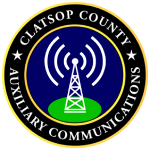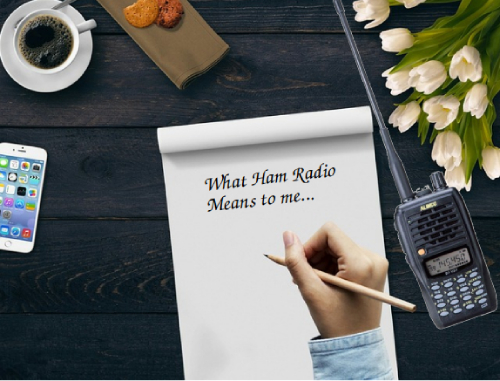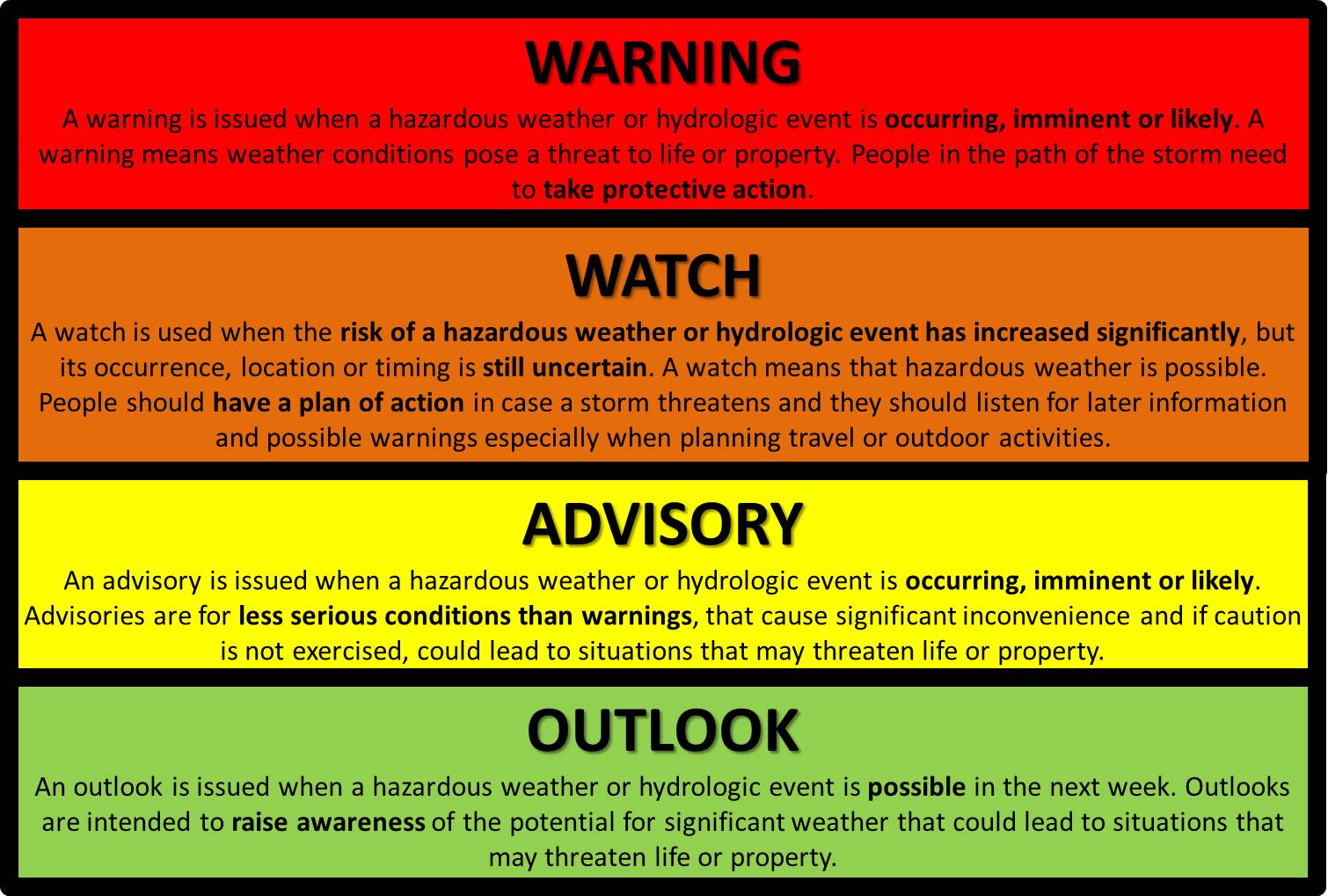My earliest introduction to radio would be due to my grandfather. He was a radioman in WWII. I remember being in grade school when he must have been in his late 60’s and he always had a radio in his living room on a shelf next to his recliner.
When it would crackle with a transmission he would stop in mid conversation and attend to it either by listening or picking up the mic and responding. He also had a couple of CB radios that we would use when our families were camping together but traveling in different vehicles. We all had call signs that were related to bugs-June bug, stink bug, lady bug, earwig…
Now fast forward to 2009. I live in Seaside now, married with 2 boys. We all endured the 2007 storm for a week in our cold house not knowing what the devil was going on. So at a yard sale a year later, I picked up a small, old radio shack handheld scanner. But I didn’t know how to program it and with what frequencies. Then I heard about a ham radio class and it was taking place right here in Seaside. So I went and got spoon fed the answers to the tech class license, passed the test and promptly…did nothing about it for approximately 9 more years.
So let me start off by saying, I wouldn’t be here today if it weren’t for my "Elmerita", Terry Williams, AF7EO. I met Terry one day several years ago in downtown Seaside as I was tending to a garden on Broadway (I’ve been working on the downtown gardens since 2008). One day in 2018, the topic of ham radio came up and I admitted to her that I had gotten my license in 2009 but never bought a radio so had never been on the air. That was like tossing a raw steak to a bulldog. She was on my tail asking me why. My excuses were weak but valid in my mind. Radios were expensive and I didn’t know what to get. I held onto this timid excuse for weeks until one day in early June. Yes, the SeaPac Convention was going on in Seaside. She literally took my hand and dragged me in there all the way to the HRO table there in the back. She announced to the clerk rather a bit too loudly that “This young lady needs to buy her first radio! Show her the Yaesu FT60!” Well, they did and I took a crowbar to my wallet and bought it. But what happened next proved to be a hurdle I would smash my face on. As we were walking away another lady at a booth closeby programmed my radio for free with magic software with over 250 repeaters throughout all of western Oregon. I was so intimidated I didn’t know how to use it, so I put the radio away for another year.
Long story short, Mike Brown came to my house and downloaded my radio to his laptop and then gave me a print out of all 250 channels. He tried to explain how a repeater worked as my tech class was so far back in the rear view mirror I couldn’t remember anything. Then he had me grab my radio and go out into our front yard and he had me dial in Megler and then he keyed up on his handheld and called out to me, I answered with my call sign and we talked for like 30 seconds. I was petrified. A triumph over my mic fright! Now to listen in on the nets for several weeks and then I started checking in.
Once I started checking in regularly and once Jeff Johnson, Hal, Ernie and Rita helped me with antennas, it wasn’t long before I started to lead the WHO Sunday night net once a month, then the Aux Comm net once a month and then a local area simplex net every other month. I now co-lead the WHO group with Caren Black. I also became a member of STARS and SEARC and Aux Comm. I also would go to work parties up to the repeaters cause I wanted to know what they looked like, where they were, and also I just enjoy work parties. I have been to the Gearhart, Megler and Nicolai repeaters. I have also volunteered for Hood to Coast a couple of years once out in the field and once as Net Control and this last year did the Great Columbia Crossing as net control. I have also become Winlink VHF capable. I have done a little Echolink as well. All this to say, the Ham radio hobby is vast and varied and I am trying different venues. This has been great for stretching me knowledge-wise as well as socially. I have met many people in club meetings, zoom meetings, events and work parties. This community has been very welcoming, generous and helpful.
So what does radio mean to me? Well, I didn’t get into it because I thought it would be fun or I liked to talk to people. I don’t have an electrical background or skill in technology. I honestly got into it out of fear. Fear of the worst-case scenario. Fear of a giant tidal wave coming in the middle of a dark and stormy night. I can thank Pat Corcoran for that. “We are overdue for a tidal wave?!” “Two weeks or MORE without help you say?!” So the portion of the hobby I am most interested in is emergency preparedness. I want to know how to use my radio to contact people for information and/or help. To that end, I am looking forward to taking part in this April’s Simulated Emergency Test which has the potential to expand our communities' readiness.
I try to balance my fear with faith. I am told not to worry, that it does not add anything to my life. Indeed worry can subtract from your life in your mental and physical health. But preparedness doesn’t show a lack of trust. In that case, Nehemiah would be at fault. He rebuilt a wall to protect God’s people while at the same time praying to God for his divine protection. I can do the same. I can prepare for the worst yet hope in God’s best even amidst perceived tragedy.
So I prepare. I have been slowly honing my skills to serve as a conduit for communication if I am needed. (emphasis on SLOWLY) I continually build on my knowledge of radio in order to prepare for the unexpected.
To that end I have studied my radio manuals. I have poured over them for hours as if learning a new language. It is all foreign to me. Nothing has come easily. Yet I am not alone and have benefited from the combined knowledge of this ham radio community. Your generosity with time, energy and materials has been amazing.
I encourage YOU also to not be satisfied with your radio abilities; to always strive to know more. To practice by making mistakes. To put yourself into different scenarios and test them. Even baby steps of practice. Can you hit any repeaters while walking to your evacuation points in your city? What if your squelch isn’t dialed in correctly? How low can your battery power go before you can’t communicate any longer? Do you have another way to power your radio? What if your favored repeater is down? Which one is your second best? If you were not using your own radio but someone else’s would you know how to use it? Where are the other antennas in your town that you could connect to if yours were down? Do you know what the different cable connectors are called and do you have any in your possession in case you would need to switch one out to fit your radio? Would you know how to add a repeater to a radio manually without the help of a computer? Do you have any of the repeater requirements memorized in case you have no notes? Can you listen on Reverse in order to pick up a weak signal from someone that may be close to you that can’t make it into the local repeater? How far can you communicate on Simplex? Can you use Winlink? Have you tried Echolink? These are all tools in your tool box. I am not saying I am proficient on any of this. But I am always trying to improve. And you can too.
Thanks again to all of you who have helped me on my journey to know my radio better. I truly do appreciate all your kindness. Thank you.




